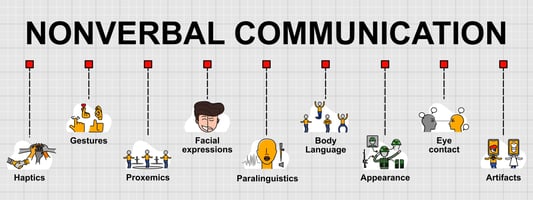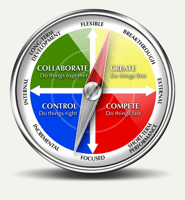Culture is…your people’s nonverbal cues.
Interview for the Culture You Want: Make sure you ask THESE questions.
Applying for a new job is like setting out into uncharted waters. Even though you’ve sailed similar seas before, the details of this new job, the new team, and the new culture are still largely a mystery.
The interview is a dance between you and your future employer. They are trying their best to know if you will be the right fit, and you likewise want to know that this team will allow you to thrive. But, with everyone putting their best face on, it can be hard to tell whether your first impressions will match with reality.
My first job after college had a solid workplace culture. People were encouraged to be themselves, make mistakes, innovate, and continue to grow. To be honest, it kind of ruined me for future jobs that didn’t live up to the same standards. Maybe it was because I had such a good experience out of the gate, and maybe I still had a level of naiveté, but as I interviewed for other jobs, I completely missed red flags in the workplace culture that are painfully obvious to me today.
We’re going to focus on one of Instill’s core vital signs—Psychological Safety—so that you can enter your next interview with a clearer understanding of the cultural waters you may be swimming in if you take the job.
Psychological Safety Warning Signs
The first vital sign of a healthy culture we look at is Psychological Safety. This is present when people know they can be themselves, that other people have their back, and it’s ok to make mistakes. In an interview, this can also be a difficult one to assess when everyone is working hard at their first impressions. For me, it took experiencing a few jobs with poor psychological safety before I learned to recognize it, but that doesn’t have to be your story.
So, let’s look at some of the dynamics you should be looking for when you go into your next interview. This will also help team leaders and interviewers assess their own culture through the lens of their next potential hire.
Signs to Look Out For
Transparency in Communication: Pay attention to how forthcoming interviewers are about the company's challenges and how they address your queries. Evasive responses or a reluctance to discuss difficulties can be a red flag.
Employee Engagement: Observe the demeanor of employees you encounter. Do they seem relaxed and engaged or stressed and checked out?
Diversity and Inclusion: A diverse team where everyone feels included is often a sign of a psychologically safe environment. You can ask about their philosophy and approach to fostering an inclusive workspace.
Feedback Culture: Inquire about or observe how feedback is given and received. This is one where more clarity is always better. Do they have a transparent process that encourages feedback? If it feels vague or fuzzy, ask for clarity, but this might also be a red flag to watch out for.
Key Questions to Ask
A novice applicant walks into an interview expecting to be the one answering all the questions. You should do enough research yourself to be able to ask your potential employer a series of questions. Don’t go in unprepared! Coming in with your own questions helps you stand out as a stronger candidate, and it will help you identify red flags more readily. Here are some to get you started:
- Can you share an instance where a team member made a mistake and how it was handled?
- How does the organization support employee growth and development?
- What are the company’s values, and how are they lived out day-to-day?
- Can you describe how decisions are made here? Who gets a say?
- How does the company handle disagreements or conflicts?
- What does success look like in this role, and how is it measured?
One topic that can be difficult to bring up, but can also provide great insight into the health of a team, is how willing and open the leadership team is to incorporating views contrary to their own. Here is one way to bring that up diplomatically:
- Can you share an example of a time when a team member's unique idea or perspective significantly influenced a project or decision? I'm interested in understanding how collaborative input is valued and integrated into the decision-making process here.
Remember, an interview is a two-way street. While the company assesses if you’re the right fit for them, it’s equally important for you to determine if the organization aligns with your values and offers a psychologically safe environment. In the era of remote work and shifting workplace norms, the significance of psychological safety has only amplified. By asking the right questions and observing keenly, you can ensure you’re stepping into a workplace where you can thrive, innovate, and grow.
At Instill, we help companies focus on key vital signs to measure, build, and advance their workplace culture like never before. Tools like Instill’s Culture Operating System™ can enable organizations to measure and enhance their culture, ensuring aspects like psychological safety are not just aspirational goals but lived realities. Remember, the right fit isn’t just about the role – it’s about the culture you’ll be part of. Choose wisely!




Blog comments